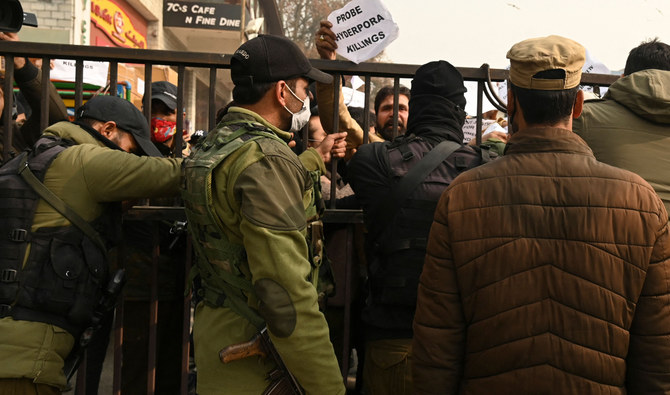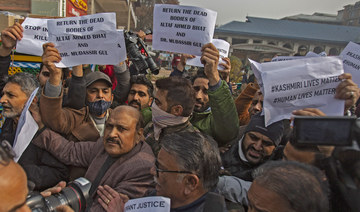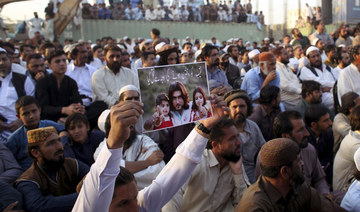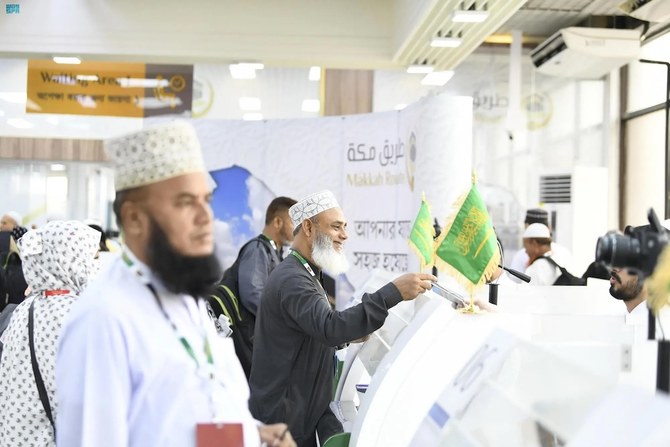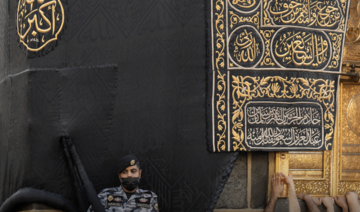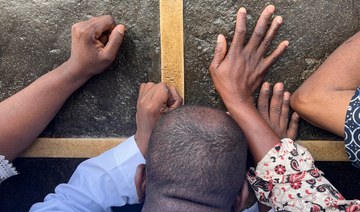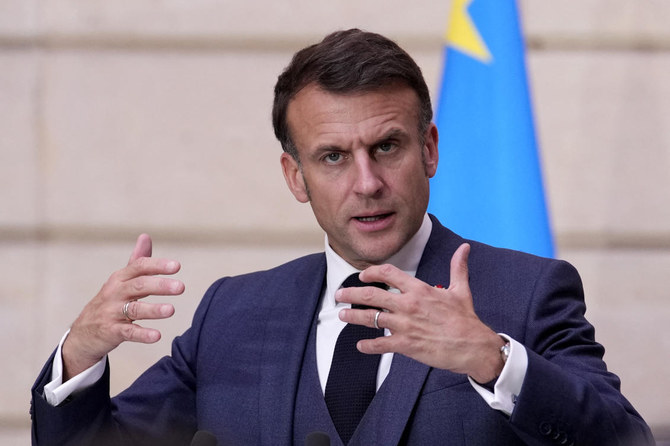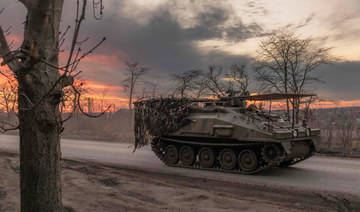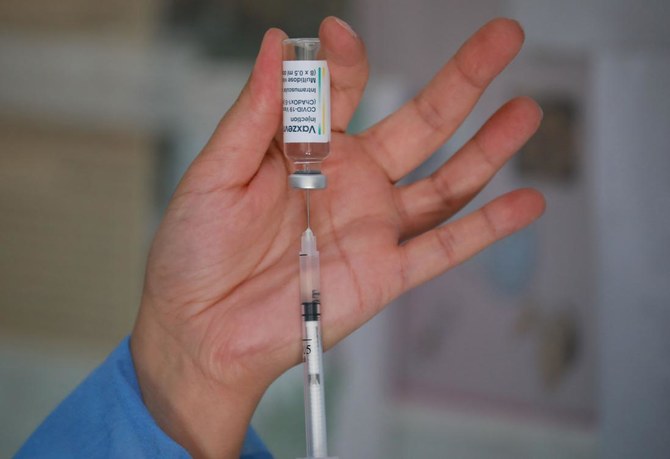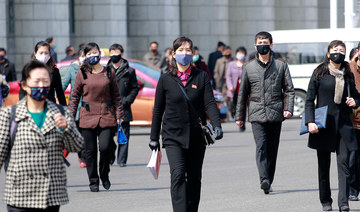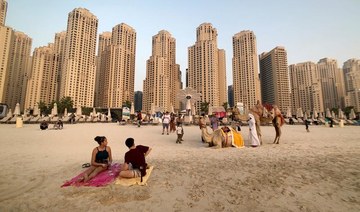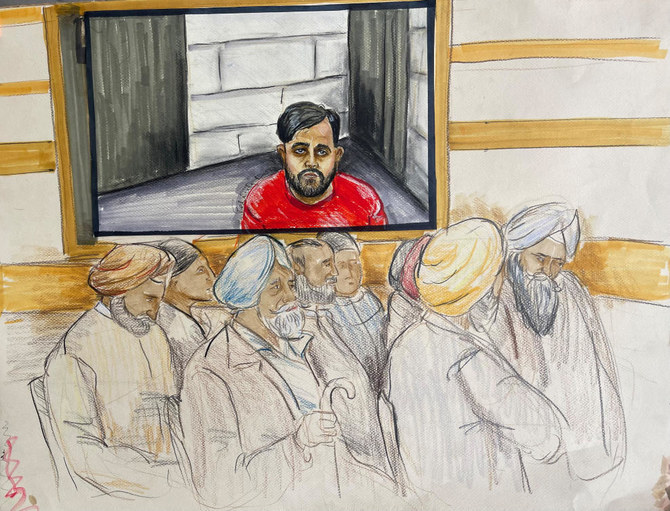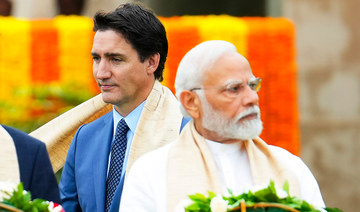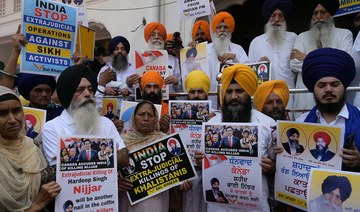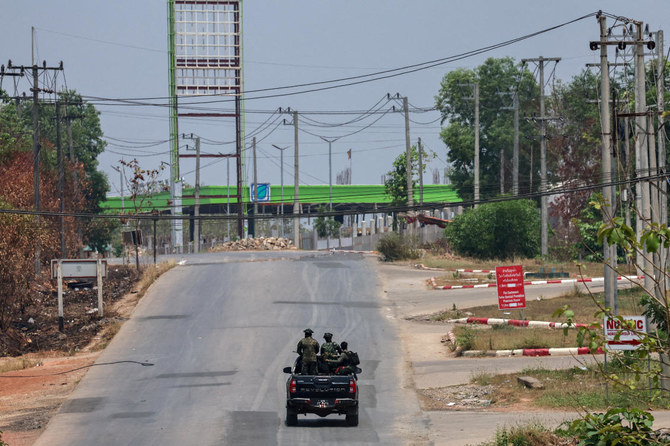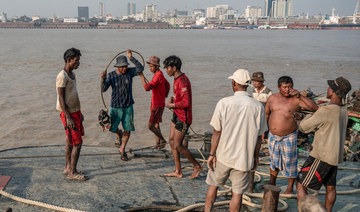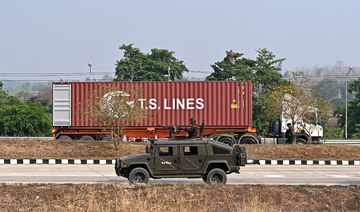NEW DELHI: The administration of Indian-controlled Kashmir ordered a probe on Thursday into a controversial operation in which security forces killed four people earlier this week.
Two civilians and two suspected rebels died on Monday in a police raid at a commercial complex in the Hyderpora area in Srinagar, the region's capital.
According to police, the civilians — businessman Altaf Ahmad Bhat, 48, and Mudasir Gul, 40, a dental surgeon — died in the crossfire. But witnesses and families of the victims said troops had used them as human shields.
The deaths of Bhat and Gul sparked outrage in the Muslim-majority region.
Their families have held sit-ins in Srinagar demanding justice and that the bodies be returned for a proper Islamic funeral after authorities secretly buried them at a remote graveyard.
After the protest ended, when police on Wednesday night detained some of the demonstrating relatives, Manoj Sinha, a New Delhi appointee serving as Kashmir's top administrator, said the administration had ordered a “magisterial inquiry” into the killings.
“Govt will take suitable action as soon as report is submitted in a time-bound manner,” he tweeted.
Dilbag Singh, director general of Kashmir Police, told the media he would look into the demands of the families.
“We are open to corrections if anything has gone wrong. A police probe will also find out what went wrong,” he said. “We will find out what happened in the Hyderpora encounter. We are for the safety of people and will not shy away from a probe.”
But Saima Bhat, a Srinagar-based journalist and the niece of one of the victims, told Arab News her family was more concerned about receiving the body for burial rather than the probe.
“We don’t care about the inquiry right now, our focus is to get the dead body of my uncle. I have met people in the administration and they have not said anything concrete on this matter so far,” she said.
According to media reports, the victims were buried 80 kilometers from Srinagar, following a policy that started last year in which suspected rebels and their alleged associates, including civilians, are laid to rest in unmarked graves in remote areas to prevent large gatherings.
A witness who was present at the Hyderpora complex during Monday's encounter told Arab News that the victims were used as “human shields.”
"It was Monday evening between 5:30 and 6 p.m. when the whole area was cordoned. Bhat, who was closing his shop, was asked to accompany the troops to the building. Gul was also taken. Bhat came back twice but he did not return the third time. Similarly Gul was brought back once but he did not return a second time from the encounter site,” he said on condition of anonymity. “I feel they were used as human shields.”
The controversial encounter has become a political issue, with the pro-independence grouping All Parties Hurriyat Conference announcing a protest shutdown of the Kashmir valley region on Friday.
Kashmiris for years have accused Indian troops of targeting civilians and committing abuses with impunity.
The allegations include staging gunfights and then saying the victims were militants. Some have doubts whether the announced probe will bring justice.
“So far more than 100 commissions have been set up,” Hurriyat chief Mirwaiz Umar Farooq told Arab News. “Not in a single case justice has been served.”
Srinagar-based journalist Gowhar Geelani told Arab News that such inquiries were used to “buy time and tire out the families.”
Prof. Siddiq Wahid, a political analyst from Srinagar, questioned the meaning of a judicial probe as he said soldiers enjoyed immunity.
“What the world needs to know is that the soldiers who committed this crime are protected by a law called the Armed Forces Special Powers Act,” he said. “What are we to expect from a government ordered judicial probe?”
India's ruling Bharatiya Janata Party, however, welcomed the inquiry.
“I hope if some injustice has taken place that should be addressed and the families should get justice,” the BJP spokesperson in Kashmir, Manzoor Bhat, told Arab News. “The anger of the people is justified, but the political parties are now trying to vitiate the atmosphere in the valley in an attempt to take advantage of the situation.”



